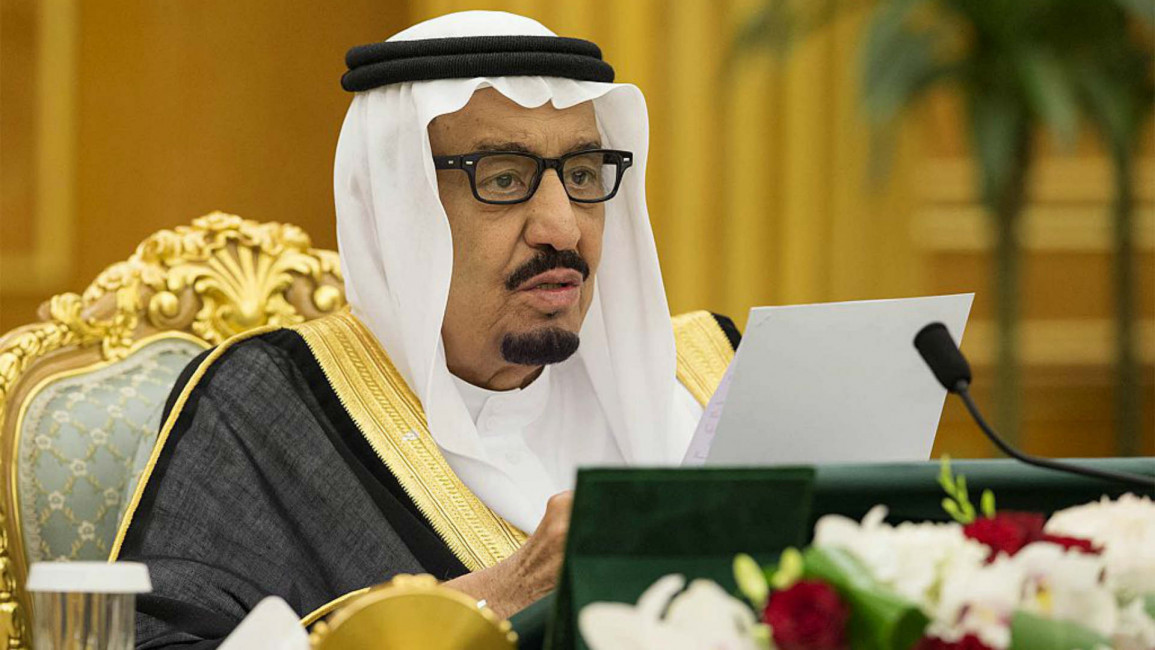
Essam Koshak case will test Saudi Arabia's 'reformed' prosecution service
Saudi Arabia's announcement in mid-June that that the dreaded Bureau of Investigation and Prosecution (BIP) would be reorganised as an independent entity sparked a flicker of hope throughout the Saudi human rights community.
The BIP, previously controlled by the Interior Ministry, has terrorised peaceful Saudi dissidents since 1988 through various means, including harassment, endless summonses for interrogation, arbitrary detention, and prosecution in blatantly unfair trials on laughably spurious charges.
The BIP targeted numerous Saudis over the years who dared to speak out for human rights, including the online activist Essam Koshak, who has languished in Mecca General Prison for more than six months without charge.
The BIP apparently went after him because of his online activism, including his work highlighting the repression of women and jailed peaceful dissidents. He is merely one of numerous BIP victims, but his case will be an early indication of whether the prosecution reorganisation as an independent entity is merely ink on paper.
The new agency, to be called simply the Public Prosecution, will technically be an independent entity under the king. The June 17 royal decree stated that the change was "in [accordance] with the rules and principles of many countries of the world," and based on "the necessity of separation between executive authority in the state and the bureau and its work since it is part of the judicial authority".
 |
The Bureau of Investigation and Prosecution had a nasty penchant for operating outside the bounds of the law with impunity |  |
Saudi watchers immediately viewed the royal decree - especially the reference to executive authority - as an internal power grab against then-Interior Minister Mohammad bin Nayef, whom King Salman sacked as interior minister and crown prince five days later. He appointed his son Muhammad bin Salman as the new crown prince on the same day and the new leadership then reportedly put Mohammad bin Nayef under house arrest.
Twitter Post
|
Under Mohammad bin Nayef's authority the BIP repeatedly bullied and harassed Saudis who expressed their own independent views on politics, religion, and society, that were at odds with the state-imposed narrative. It also had a nasty penchant for operating outside the bounds of the law with impunity, in effect sending the message to Saudis that the BIP was irreproachable and could not be held to account.
Once you got into the BIP's crosshairs, it was nearly impossible to get out. When the BIP brings charges against activists and dissidents, it tends to use vague catch-all categories such as "breaking allegiance with the ruler" or "insulting the judiciary" or "participating in protests" - none of which constitute recognisable crimes.
Koshak's case also demonstrates the BIP's total disregard for Saudi Arabia's own rule of law. In all the time he has been held without charge, its investigators have conducted only one investigation session with him. At no point have authorities explained to Koshak or his family the reasons for his detention, as stipulated by article 116 of the country's criminal procedure code (CPC).
Under article 114, the CPC says that six months is the upper limit for detention without charge, yet Koshak has been held for more than 20 days past the six-month limit.
Article 114 also holds that no extension of detention can be more than 30 days, yet Koshak's latest BIP detention extension order from late February was for 90 days. Authorities can extend detentions for more than 90 days at a time and for more than six months total under the country's abusive counterterrorism law, but holding a suspect longer than six months requires approval from the country's terrorism court. In addition, the possibility that Koshak could face terrorism charges for tweeting about women's rights is ludicrous.
 |
At no point have authorities explained to Koshak or his family the reasons for his detention |  |
Koshak's case demonstrates clearly why Saudi Arabia's prosecution service needed an overhaul, but it will also test whether the change is merely cosmetic to disguise its intent to further concentrate power with the new crown prince.
Unlike the 20 or so prominent activists and dissidents whom Saudi courts have sentenced to long jail terms in unfair trials since 2011, Koshak has is not yet facing trial - his case is still in the hands of the public prosecution.
Saudi Arabia's prosecution service can prove its independence and respect for the rule of law by putting an end to the arbitrary practices of its predecessor agency and treating everyone with fairness and respect.
A good first step would be the immediate release of Essam Koshak, who has suffered the indignity of prison for no good reason and with no idea when his nightmare will end.
Adam Coogle is a Middle East researcher at Human Rights Watch.
Follow him on Twitter: @cooglea
Opinions expressed in this article remain those of the author and do not necessarily represent those of The New Arab, its editorial board or staff


![President Pezeshkian has denounced Israel's attacks on Lebanon [Getty]](/sites/default/files/styles/image_684x385/public/2173482924.jpeg?h=a5f2f23a&itok=q3evVtko)



 Follow the Middle East's top stories in English at The New Arab on Google News
Follow the Middle East's top stories in English at The New Arab on Google News


